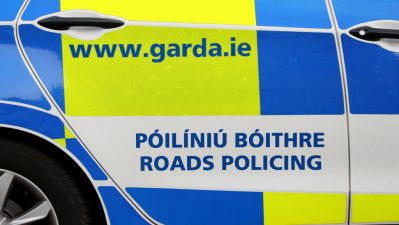Justice Minister Helen McEntee has insisted that Garda enforcement of the rules of the road is “strong”, after figures suggested the number of Garda checkpoints being carried out had dropped significantly.
She was responding after Minister of State Jack Chambers said there was “a need to strengthen enforcement”, in response to reports in The Irish Times of a drop in the number of breath tests and members in road policing units.
Mr Chambers made the comments as he announced a proposal to increase penalty points for road offences if they take place over bank holiday weekends.
The Government is to consider emergency legislation that contains several road safety measures this week.
At the weekend, five people died in separate road incidents across the country, including a hit-and-run in Limerick in which a 22-year-old student was killed.
Ms McEntee said it had been “a devastating weekend” on the roads and offered her condolences to the families affected.
“This is not the direction we want trends to be moving,” she said, speaking to the media in Athlone.
“We have met recently – myself, with the Garda Commissioner (Drew Harris), with Minister Chambers – (with) the RSA and many others with a particular focus on how we can all double down our efforts on how we can do more to try and reverse these really worrying trends.”
Ms McEntee said funding in the Budget would ensure the increased number of GoSafe vans on Irish roads continues into next year and that the average-speed cameras being rolled out across the country are “really important”.
She also said that the reduced Garda numbers in policing units did not necessarily correlate to where road deaths are.
“When we look at the different numbers in the units, where we’ve seen the largest reduction is within the greater Dublin area, and yet the number of road fatalities in that area has not increased in the same way as the rest of the country.
“So, the numbers don’t necessarily correlate to where the road deaths are.”
There has been an increased focus on road deaths in Ireland this summer following several crashes involving young people and an increase in deaths compared with the same period last year.
The Government has already committed to reduce default speed limits, with the maximum on rural and local roads to fall from 80km/h to 60km/h, and from 50km/h to 30km/h in urban, residential and other built-up areas.
It has also committed to legislating to allow for multiple penalty points on a driver’s licence if multiple offences were committed during one incident and for mandatory drug testing at the scene of a collision.
Mr Chambers said on Monday that the emergency legislation would also allow the Minister for Justice to vary penalty points during specific periods for offences such as not wearing a seatbelt or speeding.
This would reflect the “higher level of risk at bank holiday weekends”, he told RTE’s Today With Claire Byrne programme.
“We know, for example, in the February, June and August bank holiday weekends of this year, we had 46 fatal or serious collisions, we had 10,000 people detected for speeding, and we had 340 arrests for drink-driving.
“The evidence when it comes to bank holiday weekends (has) been shown across multiple years to be at a higher risk to motorists and vulnerable road users, and that’s why there’ll be a greater level of deterrence and enforcement with this reform as well.”
The minister, who has responsibility for international and road transport and logistics, said he has been working with Ms McEntee and the Garda Commissioner on “strengthening enforcement and visibility” of road safety rules, admitting that enforcement was a problem.
RSA’s #CheckitFits Service is visiting counties Longford and Westmeath. The free #CiF service is a full-time, nationwide, expert service which aims to put your mind at ease that your child’s car seat is safely and securely fitted.
Visit https://t.co/uhW9xCRoFL for more details. pic.twitter.com/Mgq9aprD1j— RSA Ireland (@RSAIreland) October 15, 2023
The Irish Times has reported that the number of breath tests carried out at Garda checkpoints and the number of gardaí assigned to roads policing had fallen dramatically compared with pre-pandemic levels.
“There is an issue (with enforcement) and there is a need to strengthen enforcement,” Mr Chambers said.
“Enforcement levels across a number of areas aren’t what they were… and we need to reverse that. For reform to work, for all the measures to work which we’re trying to progress from a road safety perspective, there has to be that perception of enforcement.”
Responding to the comments, Ms McEntee said she thinks “enforcement is strong”.
“I think we will need to do everything that we can do to make it even stronger,” she said.

“I think what we’re seeing are changing trends, changing behaviours, and we need to be able to respond to that.”
Ms McEntee said that GoSafe vans will be going to nine particular areas “because of the fatalities that have happened in those counties” and “challenges on particular roads”.
“Gardaí are always looking at the facts, the figures, they’re responding to trends. We’re of course trying to do everything we can to increase the number of people working in those road units, but it is a collective effort.”







